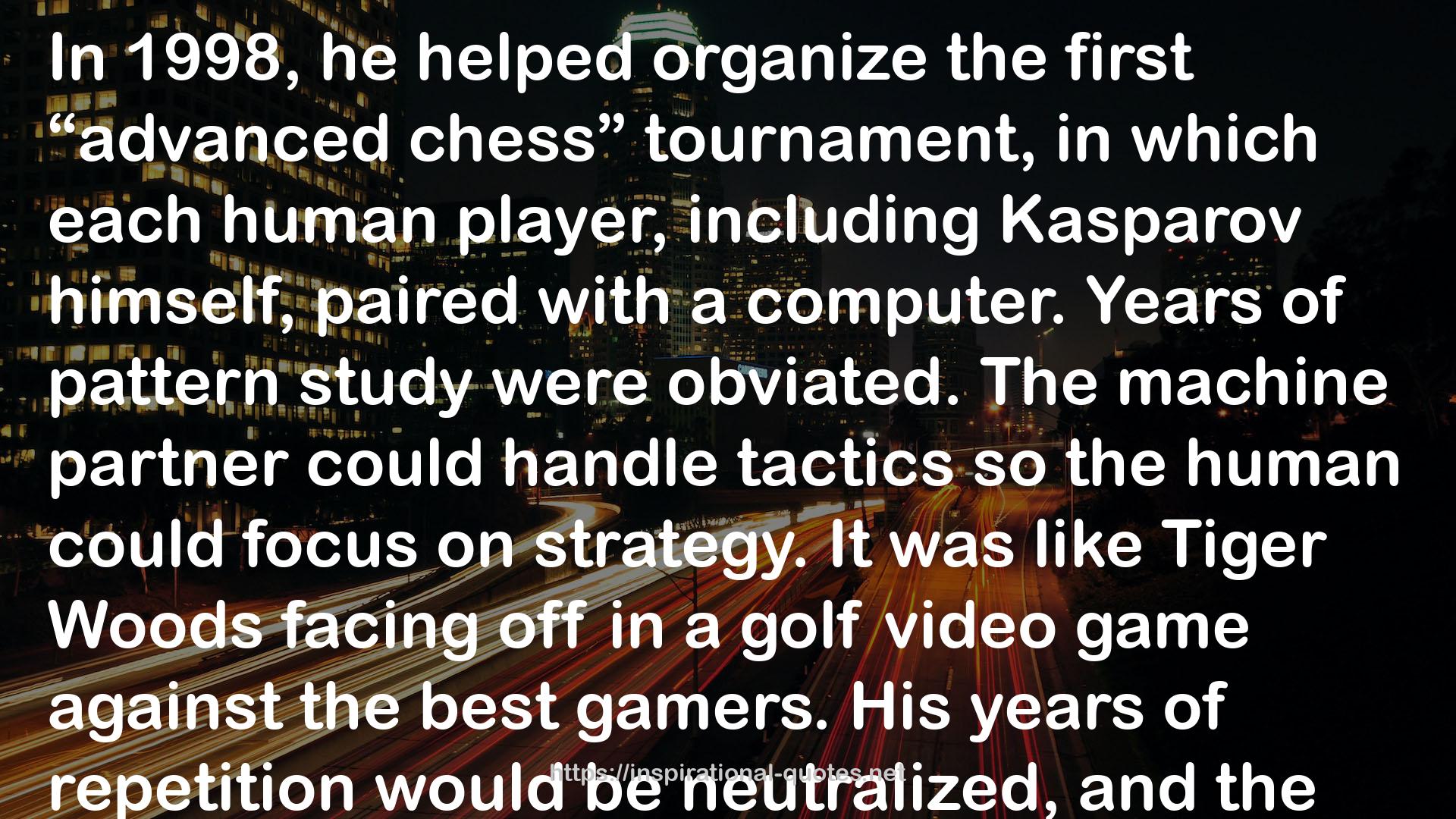" In 1998, he helped organize the first “advanced chess” tournament, in which each human player, including Kasparov himself, paired with a computer. Years of pattern study were obviated. The machine partner could handle tactics so the human could focus on strategy. It was like Tiger Woods facing off in a golf video game against the best gamers. His years of repetition would be neutralized, and the contest would shift to one of strategy rather than tactical execution. In chess, it changed the pecking order instantly. “Human creativity was even more paramount under these conditions, not less,” according to Kasparov. Kasparov settled for a 3–3 draw with a player he had trounced four games to zero just a month earlier in a traditional match. “My advantage in calculating tactics had been nullified by the machine.” The primary benefit of years of experience with specialized training was outsourced, and in a contest where humans focused on strategy, he suddenly had peers. A few years later, the first “freestyle chess” tournament was held. Teams could be made up of multiple humans and computers. The lifetime-of-specialized-practice advantage that had been diluted in advanced chess was obliterated in freestyle. A duo of amateur players with three normal computers not only destroyed Hydra, the best chess supercomputer, they also crushed teams of grandmasters using computers. Kasparov concluded that the humans on the winning team were the best at “coaching” multiple computers on what to examine, and then synthesizing that information for an overall strategy. Human/Computer combo teams—known as “centaurs”—were playing the highest level of chess ever seen. If Deep Blue’s victory over Kasparov signaled the transfer of chess power from humans to computers, the victory of centaurs over Hydra symbolized something more interesting still: humans empowered to do what they do best without the prerequisite of years of specialized pattern recognition. "
― David Epstein , Range: Why Generalists Triumph in a Specialized World
